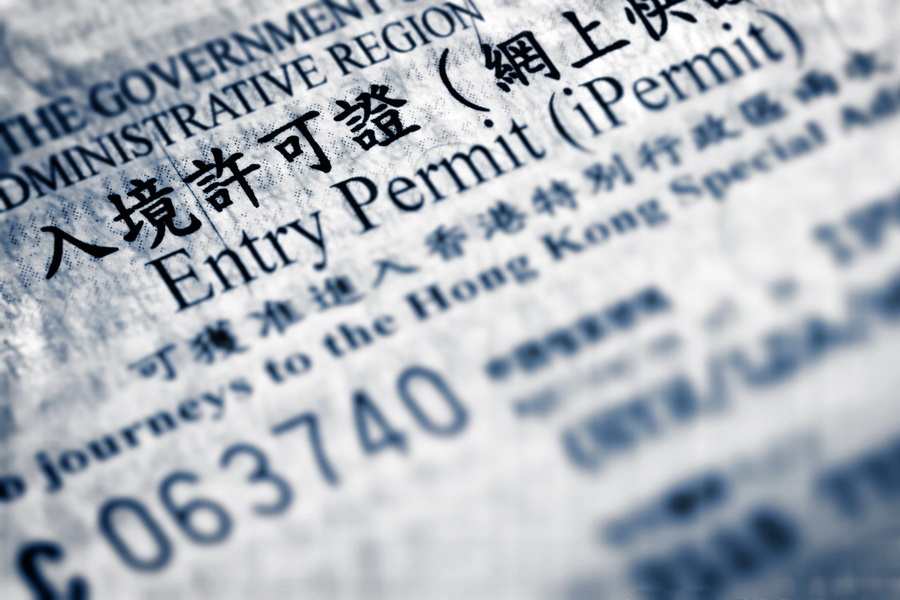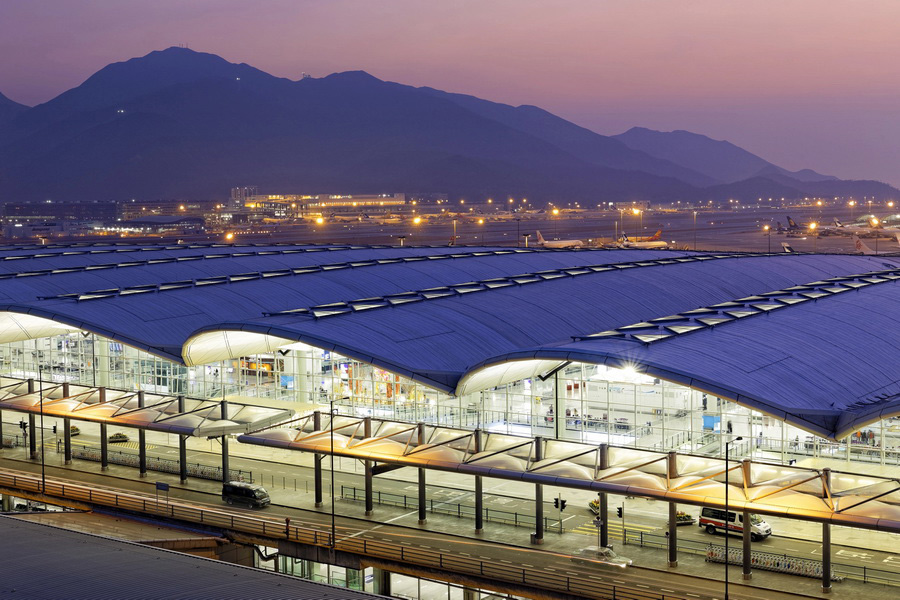
- Do I need a visa for Hong Kong?
- Hong Kong visa-Free policy for foreign countries?
- Visa non-exempt countries: requirements and application process
- What are the basic entry requirements for all foreign visitors?
- Visa application checklist: essential documents you need
- Electronic services for visa application: an easy way to apply
- What are the 13 Hong Kong entry points and 2 shipping points?
- Useful tips for travellers
The Hong Kong Special Administrative Region (HKSAR) of the People’s Republic of China maintains distinctive visa policies that differ from Mainland China. Whether you are visiting for tourism or business, understanding the visa requirements is essential to ensure a lawful entry.
Do I Need a Visa for Hong Kong?
The first logical thing individuals will look up when planning their trip is whether they need a visa for Hong Kong or not. Citizens of over 170 countries and territories can travel to HKSAR without a visa provided they meet all entry requirements. The permitted duration of stay can vary, depending on your nationality, but it usually ranges from 7 to 180 days.
Travellers who do not fall under the visa waiver scheme must obtain a visa in advance, even for short-term visits. For instance, natives of Afghanistan and Nepal need to apply for a visa at their nearest Chinese embassy or consulate.
Hong Kong Visa-Free Policy for Citizens of Foreign Countries
Visa exemptions are offered to nationals from a long list of countries, which makes HKSAR stand out in the region. Below is a comprehensive list of Hong Kong visa-free countries that benefit from this regime:
- 180 days – United Kingdom, except citizens of the United Kingdom Territories and Special Territories.*
- 90 days – Andorra, Anguilla, Antigua & Barbuda, Argentina, Australia, Austria, Bahamas, Barbados, Belgium, Belize, Bermuda, Botswana, Brazil, Brunei Darussalam, Bulgaria, Canada, Cayman Islands, Chile, Colombia, Croatia, Republic of Cyprus, Czech Republic, Denmark, Dominica, Ecuador, Egypt, Estonia, Falkland Islands & Dependencies, Faroe Islands, Fiji, Finland, France, Germany, Gibraltar, Greece, Greenland, Grenada, Guyana, Hungary, Iceland, Republic of Ireland, Israel, Italy, Jamaica, Japan, Kenya, Kiribati, Republic of Korea, Latvia, Liechtenstein, Lithuania, Luxembourg, Malawi, Malaysia, Maldives, Malta, Mauritius, Mexico, Monaco,, Namibia, Nauru, The Netherlands, New Zealand, Norway, Papua New Guinea, Poland, Portugal, Romania, San Marino, Saudi Arabia, Seychelles, Singapore, Slovakia, Slovenia, Spain, St. Kitts and Nevis, St. Lucia, St. Vincent and the Grenadines, Sweden, Switzerland, Tanzania, Tonga, Trinidad & Tobago, Türkiye, Tuvalu, Uruguay, USA (except Diplomatic passports), Vanuatu, Venezuela, Zambia, Zimbabwe.
* United Kingdom Territories and Special Territories (including British Overseas Territories citizens, British Overseas citizens, British subjects, and British Protected persons), British Antarctic Territory, British Indian Ocean Territory, British Virgin Islands, Montserrat, the Pitcairn Islands group (Pitcairn, Henderson, Ducie & Oeno Islands), St. Helena, St. Helena Dependencies (Ascension, Tristan da Cunha), the South Georgia and the South Sandwich Islands, the Sovereign Base Areas of Akrotiri and Dhekelia, and the Turks and Caicos Islands.
- 30 days – Armenia, Bahrain, Belarus, Bolivia, Cape Verde, Costa Rica, Dominican Republic, El Salvador, Georgia, Guatemala, Honduras, Indonesia, Jordan, Kuwait, Morocco, Oman, Panama, Paraguay, Peru, Qatar, Samoa, South Africa, Thailand, Tunisia, Uganda, United Arab Emirates.
- 14 days – Albania**, Algeria, Benin, Bhutan, Bosnia and Herzegovina, Burkina Faso, Chad, Comoros, Djibouti, Equatorial Guinea, Gabon, Guinea, Haiti, India (pre-arrival registration required), Kazakhstan, Lesotho, Madagascar, Mali, Marshall Islands, Mauritania, Micronesia, Mongolia, Montenegro, Mozambique, Niger, North Macedonia, Palau, Philippines, Russian Federation, Sao Tome and Principe, Serbia**, Suriname, Ukraine, US Trust Territory of Pacific Islands (holders of US Trust Territory passports only), and Vatican City.
** Biometric passport holders only.
- 7 days – nationals of other foreign countries do not require a visa. Please refer to the website of the Government of the HKSAR’s immigration department.
The visa exemption policy is strictly limited to short-term purposes such as tourism, attending business meetings, or transiting through Hong Kong. Individuals intending to work, study, or reside in the territory for an extended period must obtain the appropriate visa or entry permit in advance.
Visa Non-Exempt Countries: Requirements and Application Process

Passport holders from the following countries must obtain a Hong Kong visa for tourism and even for transit:
Afghanistan, Angola, Azerbaijan, Bangladesh, Burundi, Cambodia, Cameroon, Central African Republic, Democratic Republic of Congo, Republic of Congo, Cuba, Eritrea, Eswatini (formerly Swaziland), Ethiopia, Gambia, Ghana, Guinea-Bissau, India, Iran, Iraq, Ivory Coast, North Korea, Kyrgyzstan, Laos, Lebanon, Liberia, Libya, Moldova, Myanmar, Nepal, Nicaragua, Nigeria, Pakistan, Palestine, Rwanda, Senegal, Serbia*, Sierra Leone, Solomon Islands, Somalia, South Sudan, Sri Lanka, Sudan, Syria, Tajikistan, Togo, Tonga**, Turkmenistan, Tuvalu, Uruguay***, Uzbekistan, Vietnam, Yemen, and all “stateless” travel document holders.
*Non-biometric passport holders or Serbian passports issued by the Coordination Directorate in Belgrade.
**Tongan National passports and Tongan Protected Persons passports.
***Uruguay passports issued under Decree 189/90.
Note: Please refer to the website of the Hong Kong (HKSAR) Immigration Department for the specific conditions for each country.
Those who are not exempt from a Hong Kong visa and wish to go there for tourism, visiting family and friends, or business-related activities must apply for an entry permit. This document is issued by the Hong Kong (HKSAR) Immigration Department, a Chinese Visa Application Service Centre, a Chinese embassy or consulate, and offers travellers a temporary stay of up to 14, 30, or 90 days, depending on the purpose of the visit and the nationality of the applicant. Both the travel and business entry permits must be obtained before arrival in Hong Kong. The requirements are the same as in the case of a visa. The list of embassies and consulates is available on the website of the Ministry of Foreign Affairs of the People’s Republic of China.
Note: Employment while visiting Hong Kong with the entry permit is not permitted.
What Are the Basic Entry Requirements for All Foreign Visitors?
All foreign nationals must satisfy Hong Kong’s immigration requirements, regardless of the visa exemption status. The following terms must be met:
- Holding a valid passport with blank pages and a recommended validity period of six months beyond your intended stay;
- The applicant’s bona fides not being in doubt;
- Having proof of onward travel or return tickets is required unless the destination is the Mainland of China (the Mainland) or the Macao Special Administrative Region (SAR);
- Having sufficient funds for travel during your visit to Hong Kong.
Indian passport holders will need a Hong Kong Pre-Arrival Registration (PAR), even if they’re exempt from a visa.
Visa Application Checklist: Essential Documents You Need
General Requirements for All Travellers
Although the exact requirements depend on the Hong Kong visa category, applicants for tourist or business visas are expected to submit the following list of standard documents:
- A Completed Visa Application Form (ID 1003A): The official website of the Hong Kong Immigration Department has a downloadable form that travellers can fill out. After submitting it, we recommend you print it out and have it with you when you attend an interview.
- Two Recent Passport-Sized Photographs: The photos have to correspond with the basic standards (neutral face, white background, etc.). For more information, visit the website of your local consulate or visa centre.
- A Passport With a 6-month Validity and a Copy of Its Bio Data Page: The photocopy of the bio data page should contain personal particulars, date of issue, date of expiry, and details of any re-entry visa held (if applicable).
- Proof of Sufficient Funds: Bank statements, savings account passbooks, tax receipts, employer letters, and anything of the sort.
- Travel Itinerary: A photocopy of the flight ticket and hotel accommodation, with relevant information like the date and the time of departure and arrival and the duration of stay.
- Photocopy of proof of the purpose of the visit to Hong Kong: for a tourist visa, for instance, a receipt of joining a package tour. For a business visa, details of business meetings.
Tourist Visa Supporting Documents

Travellers applying for a visit or tourist visa to Hong Kong are required to provide documentation that demonstrates the purpose of their stay, as well as their ability to support themselves during the visit. This may include:
- An invitation letter from a relative or friend with whom you’ll be staying. The letter should include the host’s full name, contact information, address, and signature.
- Proof of relationship to said person – that could be a birth certificate or a marriage certificate.
- Employment certificate: Applicants may be required to submit a letter from their current employer. It should contain information about their position, salary, and other relevant details.
- Proof of accommodation: If not staying with the host, applicants must provide proof of hotel bookings or other arrangements.
Business Visa Supporting Documents
- An invitation letter from a Hong Kong company: The letter should state the purpose of the visit, details of the business meeting, and the duration of stay.
- A company cover letter should outline the applicant’s position, reason for a business trip, and duration.
- A Business registration certificate must be provided from an inviting Hong Kong company to verify the legal status of the host.
- Financial documents, such as bank statements, corporate account records, and other relevant items.
Electronic Services for Visa Application: An Easy Way to Apply
As an effort to simplify the immigration procedures, the Hong Kong Immigration Department offers travellers electronic services for visa applications. The updated system allows individuals to submit application forms, supporting documents, and fee payments for various travel documents. This reduces the time spent in a queue at the visa offices and makes the approved documents downloadable and printable for the convenience of the applicants. To see a complete list of services and the application forms, please visit the website of the Immigration Department (ImmD) of the Government of the HKSAR of the PRC.
The process is simple and entails the following:
- The applicant submits an online application form, uploads the relevant documents, and pays the application fee;
- The Immigration Department acknowledges the receipt of the application via email;
- The Immigration Department processes the application and can request the applicant to submit supplementary documents online;
- The Immigration Department issues an electronic notification about the result of the application.
Upon approval:
- The applicant pays the fees online via a link provided in the notification of the application result;
- The applicant downloads or prints the e-visa after the payment is completed.
Individuals who wish to apply for tourist or business visas/permits, transit visas/permits, or those who want to extend their stay beyond the duration allowed by the visa-free policy, must submit a valid travel document (containing personal information, date of issue and expiry, and details of any previous re-entry visa if applicable), a recent photo, proof of sufficient funds, proof of transportation arrangements, proof of proposed leisure visit to Hong Kong, an onwards ticket (for transit), a letter of invitation (for business visits), proof of relationship with a local sponsor (for family visits), and other supporting documents.
What are the 13 Hong Kong entry points and 2 shipping points?

The Special Administrative Region of Hong Kong can be accessed through 13 entry points:
Entry Point at the Airport
1. The Airport Control Point at Hong Kong International Airport (HKG) is open 24/7, and visitors have to wait a comparatively shorter time for entry.
Address: Passenger Terminal Building, Hong Kong International Airport, Chek Lap Kok, Lantau.
Telephone: 2183 1281
Entry Points at the Hong Kong Railway Stations
2. The Lok Ma Chau Spur Line is open from 6:30 am to 10:30 pm. The waiting time is reasonable but may be longer during rush hour, on weekends, and in the holiday season.
Address: MTR Lok Ma Chau Station, New Territories.
Telephone: +852 2486 0301 or +852 2486 0313
3. The Express Rail Link West Kowloon (also known as the Hong Kong West Kowloon Station). This entry point operates from 6:30 am to 11:30 pm. Similarly, it tends to be particularly crowded during the peak travel seasons, holidays, and weekends.
Address: Hong Kong West Kowloon Station, 3 Austin Road West, Tsim Sha Tsui, Kowloon.
Telephone: +852 3894 7122 or +852 3894 7132
Land Road Entry Point
4. The Lo Wu Terminal is the major land boundary control point. It allows visitors to enter from 6:30 am to midnight through a purpose-built Visitor Clearance Hall. At busy times, particularly during high travel seasons, holidays, and weekends, the clearance waiting period tends to be extended.
Address: MTR Lok Wu Station, New Territories.
Telephone: +852 2679 1105 or +852 2679 1128
5. The Lok Ma Chau Terminal control point is open 24/7 and serves cross-boundary vehicles, including the Lok Ma Chau-Huanggang Cross Boundary Shuttle Buses, coaches, goods vehicles, and private vehicles. Typically, the clearance waiting time is extended, particularly during busy travel seasons, holidays, and weekends.
Address: Lok Ma Chau Terminal, New Territories.
Telephone: +852 2482 8715
6. The Man Kam To Terminal border operates from 7:00 am to 10:00 pm and boasts a short waiting time for entry.
Address: Man Kam To Terminal, New Territories.
Telephone: +852 2670 4497
7. The Shenzhen Bay Control Point is one of the busiest land boundary control points of Hong Kong. It offers clearing services for passengers in private cars at the Passenger Clearance Building from 6:30 am to midnight.
Address: Shenzhen Bay Control Point, Shenzhen Bay Port, Hong Kong Port Area.
Telephone: +852 3154 6567

8. The Hong Kong-Zhuhai-Macao Bridge is open 24 hours and serves as the first land crossing point connecting Hong Kong, Zhuhai, and Macao.
Address: Hong Kong-Zhuhai-Macao Bridge Control Point, Hong Kong-Zhuhai-Macao Bridge, Hong Kong Port, Lantau.
Telephone: +852 3195 2172
9. The Heung Yuen Wai Border Terminal is open from 7:00 am to 10:00 pm. This terminal offers the “direct access by passengers and vehicles” service to travellers.
Address: Heung Yuen Wai Control Point, New Territories.
Telephone: +852 3552 0632
10. The last land road crossing point of Hong Kong is the Sha Tau Kok Terminal, which is currently suspended. For further information about this terminal, please contact the Immigration Department of the Government of the Hong Kong Special Administrative Region of the People’s Republic of China.
Address: Sha Tau Kok Terminal, New Territories.
Telephone: +852 2482 8715
Entry Points at the Seaports
11. The China Ferry Terminal opens at 7:00 am and serves travellers until midnight. This terminal has a comparatively shorter waiting time for entry.
Address: China Ferry Terminal, 33 Canton Road, Kowloon.
Telephone: +852 2738 2949
12. The Macau Ferry Terminal operates 24/7, and the entry time here is also quite short.
Address: Macau Ferry Terminal, 202 Connaught Road Central, Hong Kong.
Telephone: +852 2547 5265
13. The Kai Tak Cruise Terminal operates from 6:00 am to 11:00 pm. The entry may be subject to the docking schedule of cruise liners.
Address: Kai Tak Cruise Terminal, 33 Shing Fung Road, Kowloon Bay, Kowloon.
Telephone: +852 3944 2400
The Shipping Control
1. The Harbour Control Section and Western Immigration Anchorage operate 24 hours, while the Eastern Immigration Anchorage is open from 6:00 am to 6 pm.
Address: 2nd Floor, Central Government Pier, 32 Man Fai Street, Central, Hong Kong.
Telephone: +852 2543 1958
2. The River Trade Terminal operates 24 hours a day.
Address: 205 Lung Mun Road, Area 38, Tuen Mun, New Territories.
Telephone: +852 2180 9593
Useful Tips for Travellers
Health and Safety Guidelines
Visitors to Hong Kong are expected to follow established health and safety regulations during their stay. While routine vaccinations are not mandatory, they are recommended. Staying informed through official travel and health advisories from health authorities ensures a smooth entry experience. The city maintains high public health standards and efficient border procedures to support orderly and safe travel.
To cover health emergencies, consider investing in a good travel insurance package at your local provider.
Why Not Overstay Your Visa?
Travellers should observe the permitted duration of stay indicated on their visa or entry permit and adhere to all conditions of entry. Overstaying – no matter how brief – may result in a fine of as much as HK$50,000, imprisonment of up to two years, or barriers for future travel and residency. Respecting local guidelines contributes to a secure and welcoming environment for all visitors.
Timely Application Submission
Applying early will make you feel comfortable leading up to your trip. Submit your application at least a month before your intended travel date, and account for holidays and potential delays. You can track your application status online or request information from the relevant authorities.
Your Interview Preparation
Be honest during your interview. Explain your plans to the visa officer and have all the necessary documents on hand – including copies of the application form, passport, and any supporting paperwork.
Hong Kong’s visa framework underscores its position as a global centre for commerce, travel, and cultural exchange. However, this openness is governed by clear regulations. Unauthorised employment, overstaying the permitted term of stay, or violating visa conditions may result in fines or even future entry bans. Therefore, even in a territory known for its accessibility, it is essential to fully understand and comply with all immigration requirements.

